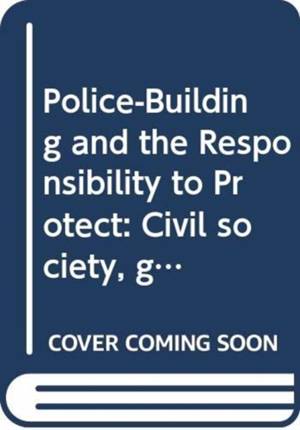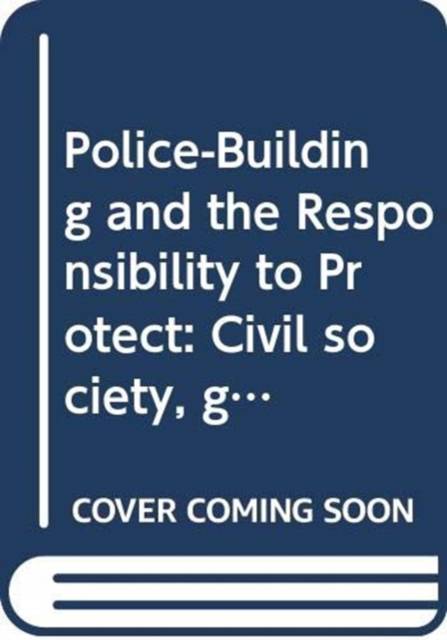
- Retrait gratuit dans votre magasin Club
- 7.000.000 titres dans notre catalogue
- Payer en toute sécurité
- Toujours un magasin près de chez vous
- Retrait gratuit dans votre magasin Club
- 7.000.0000 titres dans notre catalogue
- Payer en toute sécurité
- Toujours un magasin près de chez vous
Police-Building and the Responsibility to Protect
Civil Society, Gender and Human Rights Culture in Oceania
Charles Hawksley, Nichole GeorgeouDescription
This book examines how the UN and states provide assistance for the police services of developing states to help them meet their human rights obligations to their citizens, under the responsibility to protect (R2P) provisions.
It examines police-capacity building ("police-building") by international donors in Timor-Leste, Solomon Islands and Papua New Guinea (PNG). All three states have been described as "fragile states" and "states of concern", and all have witnessed significant social tensions and violence in the past decades. The authors argue that globally police-building forms part of an attempt to make states "safe" so that they can adhere to norms of human rights with the framework of a developing democratic polity, allow the flow of capital for investment and profit taking, and be responsible members of the international community. Oceania as a region thus illuminates numerous issues in post-conflict state-building found in other parts of the world. The case studies explore international assistance in policing provided to the Global South and link these with police-building operations elsewhere in the world -- particularly Africa (Democratic Republic of Congo since around 2000), the Caribbean (Haiti since 1999) and Europe (Kosovo since 1999) -- so as to develop a typology of police-building. The aim is to contribute to the debate concerning the appropriateness of the aid given, and to determine if a relationship exists between R2P and police-building.The Oceania region allows the authors to explore and analyse the relationship between police-building and R2P at different levels of international relations. Specifically, the book examines the range of activities adopted by the UN and other police organisations to evaluate if there is any correlation between police-building and entrenching a culture of respect for human rights within society. These case studies operate:
- at the multilateral level, where we explore the UN in Timor-Leste;
- at the regional level, as regional organisations are prominent in peace operations, we examine the Pacific Islands Forum's Regional Assistance Mission to Solomon Islands (RAMSI);
- at the bilateral level, as North-South bilateral ties are common across the world, we survey Australian policing aid (supplemented by that of New Zealand) to these states.
The authors argue that a culture of human rights in the two of the three states (Timor-Leste and Solomon Islands) is being fostered, but that police-building does little if anything to spread knowledge of R2P. Rather, an improvement in the level of knowledge and respect for human rights is due to the activism of local and international NGOs who link through transnational civil society to advocate for improvements in police treatment of citizens, publicise police abuses and pressure politicians to take action.
This book will be of much interest to students of the R2P, development studies, security-sector reform, statebuilding, peace and conflict studies, Asia-Pacific Politics and IR in general.
Spécifications
Parties prenantes
- Auteur(s) :
- Editeur:
Contenu
- Nombre de pages :
- 224
- Langue:
- Anglais
- Collection :
Caractéristiques
- EAN:
- 9780415729321
- Date de parution :
- 02-01-26
- Format:
- Livre relié
- Format numérique:
- Genaaid
- Dimensions :
- 156 mm x 233 mm
- Poids :
- 452 g

Les avis
Nous publions uniquement les avis qui respectent les conditions requises. Consultez nos conditions pour les avis.






